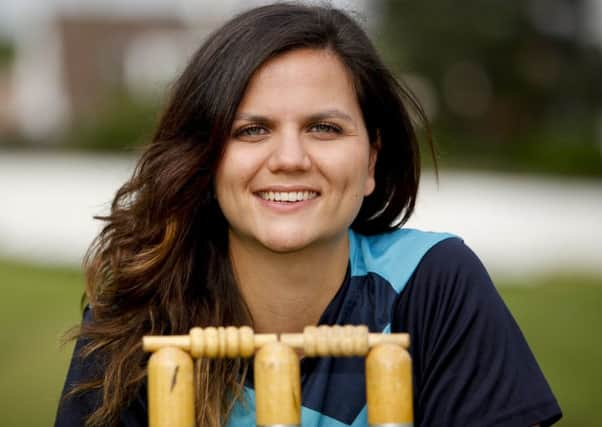Glasgow 2014: Drummond’s rise a family affair


It was amid this rural utopia that Annette and Gordon Drummond were first entranced by the sport. It appeared predestined that Gordon, eventually to captain his country, would join the fray. Annette, four years his junior, found her way similarly cleared when she too petitioned for a knock.
“When I was younger, I was the only girl I could remember playing, especially in tournaments,” Annette, now also a Scottish international, said. “But there was never once that it seemed strange because I’d done it since I was little. It was only when we went away that I thought: ‘Hold on, I’m the only girl here’. I’d have to get changed somewhere else and that’s when it seemed a little different. Otherwise everyone worked together.”
Advertisement
Hide AdAdvertisement
Hide AdThe siblings remain club-mates, although now at Edinburgh-based Carlton. Gordon, now 34, is intent on keeping his place in the Scotland side for next year’s World Cup, despite giving up the skipper’s role to concentrate on his development role in the game. His stature, though, in the eyes of his longest-standing admirer, is undiminished.
Annette said: “Gordon has gone away and researched women’s cricket to help me. He enjoys playing but he also enjoys players developing. That’s a passion for him and he’s been a big influence on me, the fact that he went away and did something which seemed impossible.”
By coming to the fore via the state school system, it was a Rubicon crossed. Likewise, he was in the first generation of Saltires to be offered contracts as compensation for a weighty schedule which sees them jet to all corners of the globe.
In contrast, their uncompensated female counterparts, the Wildcats, will drive in convoy this morning to Hertfordshire for their latest fixture in the third division of the county championship.
Such ventures are a necessity for self-improvement. “That’s what we were missing when I was younger,” said Annette, now 29.
“We have regional teams now which we didn’t have before. And there is a lot more competition for places.”
Dividends are gradually being extracted. “We’re top of the table at the moment. We hope to get promotion. There are big sacrifices in that we always have to go down to England. They won’t come up here to Scotland, which means we have a long drive for every match, but it’s worth it to get the experience.”
The Scots could be forgiven for casting a covetous glance at their English counterparts, all now paid centrally and sufficiently, with their fixtures broadcast enthusiastically by a BBC which, simultaneously, pays only a token regard to the accomplishments of Scotland and Ireland’s men.
Advertisement
Hide AdAdvertisement
Hide AdAll is driven by the bottom line. The English and Wales Cricket Board has money to burn.
Cricket Scotland, despite a plan to build a new high-performance centre in Stirling, is already stretched to the limit.
Cricket Scotland development officer, Kari Anderson, also the Wildcats’ coach, has, however, pulled together an eight-team women’s league, and some sports science support, to bridge some of the deficit, while sponsorship from Nuffield Health has injected extra resources. The primary target is to qualify for the next World Cup, with the qualifiers due next year.
That will require one habitual blockade to be shoved aside. “We were on a par with Ireland a couple of years ago but they’ve pulled away,” added Annette. “Maybe they’ve had more investment or more opportunities. But we would hope to get to a level where they are within a couple of years. That’s achievable.”
Even then, the kind of divide which would be abhorrent to the equitable denizens of Meigle will linger. Annette concluded: “To get to the level where England or Australia are now would take a significant investment which I don’t think is coming any time soon.”